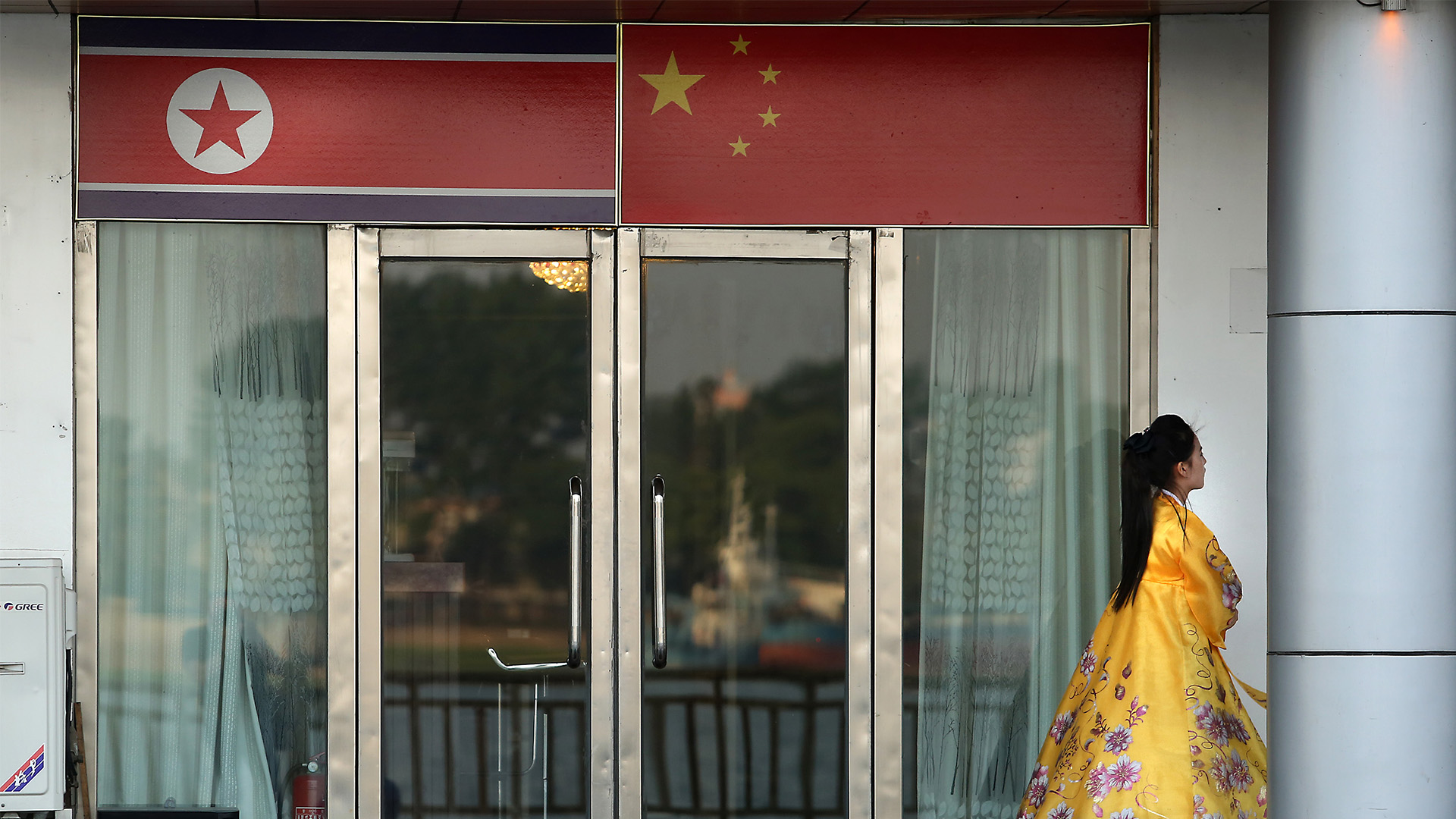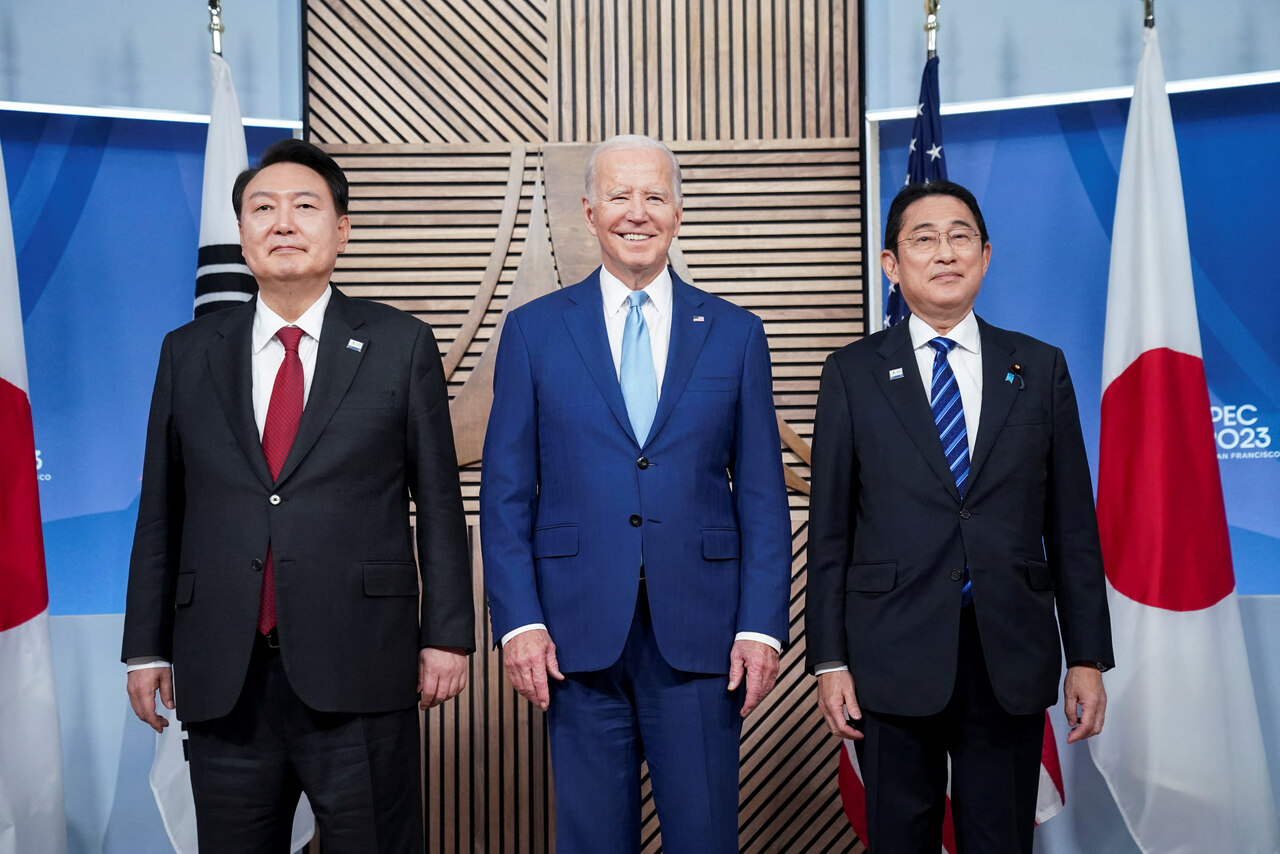North Korea Makes Trouble for China
Although North Korea is economically dependent on China, its influence on the policies of the regime in Pyongyang is limited. Challenges to Chinese interests include the development of the North Korean missile and nuclear capabilities and its growing cooperation with Russia. North Korea’s policy increases the risk of destabilisation in East Asia and leads to closer cooperation between South Korea and Japan with the U.S. To counter these developments, China may use this year’s 75th anniversary of the establishment of diplomatic relations to intensify political contacts with North Korea.
 Stephen Shaver / Zuma Press / Forum
Stephen Shaver / Zuma Press / Forum
The restoration of China’s economic and political contacts with North Korea after the COVID-19 pandemic is part of realising the Chinese long-term objectives towards the Korean Peninsula. It primarily serves to maintain stability on the peninsula amidst developments that are undesirable to China, namely the development of North Korea’s nuclear programme and its cooperation with Russia.
Objectives and Assumptions of China’s Policy towards the Korean Peninsula
Officially, Chinese authorities aim to maintain peace and stability on the peninsula. They declare their readiness to play a constructive role in promoting political solutions to the problems. This is in line with the unchanging tenets of China’s foreign policy over the past 30 years, which come down to a policy of “three no’s”—no to war, no to instability, and no to nuclear weapons on the peninsula.
Preventing armed conflict and destabilisation remains China’s overriding objective. This follows from its experience of involvement in the 1950-1953 Korean War, which cost it hundreds of thousands of casualties. Another conflict on the peninsula would arguably involve China’s involvement in the war, which would risk a direct confrontation with the U.S. In turn, the collapse of North Korea’s regime, for example as a result of economic problems, could lead to a massive influx of refugees to China. Instability in the North could also prompt the South to move towards unification. This would risk a border with a close U.S. ally. At the same time, China has been rhetorically opposed to North Korean nuclear armament, including fears that it could prompt South Korea, followed by Japan or Taiwan, to obtain nuclear weapons.
China recognises the Korean Peninsula as its sphere of influence and area of rivalry with the U.S. For decades it has regarded North Korea as a strategic buffer separating it from South Korea, where some 28,000 American troops are stationed. Given North Korea’s importance to China, the experience of the Korean War, the ideological proximity of the Communist Party of China (CCP) and the Workers’ Party of Korea (WPK) and the formal ties, the relationship between the countries is often described as being as close as “lips and teeth”.
State of China-North Korea Relations
Since 1961, China and North Korea have been linked by a Treaty of Friendship, Cooperation, and Mutual Assistance, automatically renewed every 20 years (most recently in 2021). Formally, in response to an armed attack, the parties are obliged to provide each other with immediate military and other support by all means. Since the mid-1990s, however, some Chinese politicians, military officials and scholars have questioned the legitimacy of military support to North Korea. Moreover, the treaty is defensive in nature, so it would not formally apply in the event of a North Korean attack on South Korea. China also does not conduct military exercises with North Korea. It is likely, however, that China has supported the development of North Korea’s missile programme by providing, among other things, launchers to transport missiles.
To emphasise its role in resolving issues on the Korean Peninsula, China maintains regular political contacts with North Korea. In 2018-2019, China strengthened contacts with North Korea at the highest level, with five meetings between Xi Jinping and Kim Jong Un, including the first visit by a Chinese president to the North in 14 years. During the COVID-19 pandemic, the Chinese embassy in Pyongyang was one of only a handful of functioning diplomatic missions. In March 2023, China’s diplomats and its new ambassador were the first foreign delegation allowed into North Korea since the introduction of pandemic restrictions there. Last year, Chinese government-party delegations also participated in the 70th anniversary of the signing of the Korean War armistice and the 75th anniversary of North Korea’s proclamation. Working channels of communication were restored with reciprocal visits by vice foreign ministers and the resumption of contacts between the international departments of the CCP and the WPK. However, the rank of Chinese representatives making visits to North Korea in recent months has been lower than that of Russian delegations. For example, Defence Minister Sergei Shoigu visited Pyongyang in July 2023 (by comparison, the Chinese delegation was headed by Li Hongzhong, a member of the CCP Politburo) and Foreign Minister Sergei Lavrov in October.
The most significant tool of Chinese influence over North Korea is economic. China accounts for over 95% of trade and is the main source of energy and food support for North Korea. Goods train traffic resumed in 2022 and trucks began crossing the border the following year. As a result, trade reached $2.3 billion in 2023, surpassing 80% of the 2019 volume. In addition, China maintains a favourable stance towards North Korea on UN sanctions—it opposes, circumvents, or selectively implements them, including accepting workers from North Korea and tolerating North Korean hackers on its territory.
Challenges
China is concerned about the expansion of North Korea’s missile and nuclear capabilities, as this strengthens its subjectivity and independence. It also provides an impetus to maintain and even increase the U.S. military presence in the region, the development of its alliances with South Korea and Japan and the trilateral cooperation of these countries. It also prompts South Korea and Japan to modernise their armed forces. Moreover, the development of North Korea’s military capabilities demonstrates the ineffectiveness of China’s longstanding efforts to resolve the nuclear issue on the Korean peninsula diplomatically.
Also problematic for China is the growing cooperation between North Korea and Russia. China does not comment on it but fears that Russia will encourage North Korea to escalate tensions in the region to distract the U.S. from the war in Ukraine. The development of these contacts also serves to diversify North Korean foreign policy and reduce dependence on China. China’s inability to stop North Korea’s cooperation with Russia and its armament also complicates China’s relations with South Korea. Among other things, the South criticises China for not contributing enough to stabilising the situation on the peninsula and deporting North Korean defectors. The publicity of the latter at the UN negatively affects China’s image, portraying it as a state that violates human rights.
Conclusions and Perspectives
China’s significant influence in North Korea does not mean controlling the actions of the North Korean authorities. China does not want the collapse of North Korea, fearing for its security interests, and the North Korean regime is taking advantage of this position by consolidating its rule. In doing so, it is developing a nuclear and missile arsenal, which derails the Chinese “no to nuclear weapons” goal. This follows China’s failure to provide North Korea with security guarantees that could prevent it from developing its nuclear deterrent.
Maintaining peace and stability on the Korean Peninsula will remain a key objective for China. The current escalation of tensions may prompt China, as it did in 2017-2018, to intensify diplomatic contacts with the North. The 75th anniversary of the establishment of diplomatic relations, which falls in October, may encourage a greater frequency of bilateral contacts, including solicitations for Kim Jong Un to come to China.
Since the start of the Biden administration, the topic of North Korea has not been prominent in China’s relations with the U.S. This was due to the pandemic, the war in Ukraine, and Biden’s reluctance to talk to Kim Jong Un. This may change after the possible election of Donald Trump, who in his first term forced China to cooperate on North Korea, including by threatening them with sanctions. Regardless of U.S. actions, China will be willing to exert economic pressure on North Korea to a limited extent. While calling for an easing of tensions on the peninsula, the Chinese will hold the U.S. responsible for the problems and argue that the core of the problems are U.S. disputes with North Korea.
China is likely to maintain tacit acquiescence to North Korea’s continued military cooperation with Russia, as it favours the continuation of hostilities in Ukraine, which is in Chinese interest. However, China’s entry into closer cooperation with Russia and North Korea is unlikely. It would argue for further intensification of security cooperation between South Korea, the U.S., and Japan. It would also threaten to reduce China’s room for manoeuvre and distance from the actions of its partners, or even impose sanctions on it by the West.



.jpg)
.jpg)
